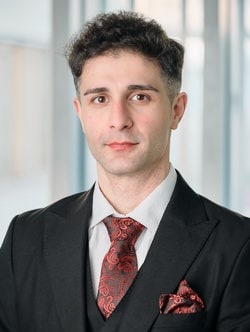
Lecturer in Credit Risk and Fin Tech
Roles and Responsibilities
Co-Organiser of the annual Quantitative Finance and Risk Analysis international symposium (Corfu 2025, Santorini 2024, Crete 2023, Kos 2020, Mykonos 2019, Rhodes 2018)
Research Director
-
PhD students in AI, East Asian Economies, Statistics, Econometrics
-
MSc students in Quantitative Finance, Risk Management, and Credit Scoring
Course Designer & Instructor
-
Time Series Forecasting (CMSE11640)
-
Data-driven Business Insights (CMSE11648)
-
Statistical Learning in Banking (CMSE11651)
Background
Stavros is currently an Assistant Professor at the University of Edinburgh Business School, Scotland, UK. Before joining Edinburgh, he held research roles at Monash University (Australia) and the South Korean firm Mind.AI.
He excels in collaborative environments, finding creative data-driven solutions, and leading teams toward impactful results. He conveys complex insights in straightforward terms to help raise capital, ensuring alignment and empowering everyone to reach shared objectives.
He specializes in designing and developing models for real-time forecasting, consistently delivering profitable insights. His proven track record includes deploying quantitative strategies and applying advanced methods, effectively bridging academic innovation with tangible global market impact.
He publishes in top academic journals—such as Proceedings of the National Academy of Sciences (PNAS) and Risk Analysis—and organize the annual international QFRA (Quantitative Finance and Risk Analysis) symposium.
Research Highlights
-
P1: Development of Pattern Causality (time series hidden causality discovery)
He led his team of PhD and MSc students to develop the Python Module “pattern-causality” and R Library “pattern causality”. Implemented agile development best practices. This software is capable of measuring dark causality in Credit Default Swaps, as published first in PNAS together with the NAS Prof. H. Eugene Stanley and visually explained in this YouTube video. -
P2: Development of PillarScape Assembler (panel time series deep-future forecasting)
He developed a new AI forecasting method called “PillarScape Assebler” which outperforms even Transformers and Deep Learning methods (prototype presentation he gave at the QFRA 2025 June conference can be provided upon request). He has received collaboration requests from leading academics in AI and Finance because of this new method). Currently his lab is preparing to ship the Python, R and C++ packages. -
P3: Development of P-mo (LLM enhancement framework)
He designed a prototype LLM training framework called “P-mo” which via a combination of fine-tuning and human reinforcement learning captures semantic knowledge from financial statements and news, reconstructing the sentiment and opportunity landscapes in empirical asset pricing. Currently under development.
Education
He earned his PhD and MRes in Applied Mathematics and Decision Making (University of Liverpool, UK), funded by prestigious EPSRC-ESRC scholarships. He also holds an MSc and BSc in Mathematics from Aristotle University of Thessaloniki (Greece), both under full IKY Scholarships. During his academic journey, he served as a visiting scholar at California Institute of Technology, won a trading competition in 2018, and continues to be recognized for both his research achievements (Best PhD Thesis 2020, University of Liverpool) as well as his practical impact on A.I. businesses.